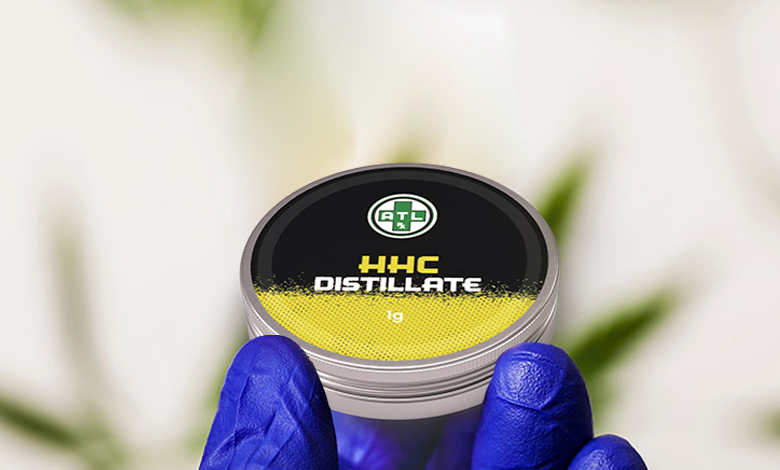Hexahydrocannabinol, also known as HHC, is one of the most prevalent cannabinoids. In small amounts, it can be found in hemp. A substantial amount of HHC can be obtained from THC through hydrogenation.
What is HHC Distillate?
HHC, or Hexahydrocannabinol, is a trace cannabinoid that naturally occurs. HHC isn’t a new discovery. It was first discovered by Roger Adams in 1944, an American chemist who used hydrogen to make Delta-9 THC.
Although HHC is naturally found in hemp, it’s not cost-effective to extract and produce. HHC distillate products can be produced commercially by hydrogenation. HHC is the most stable form of THC due to its resistance to heat and UV radiation, which prevents it from degrading. The shelf life of HHC is slightly longer than that of THC.
How is HHC Distillate made?
Hydrogenation is the method of producing HHC. This is similar to hardening vegetable oils into margarine. The first step is to extract CBD from hemp. Because natural hemp contains very little HHC, THC can be saturated with hydrogen atoms under high pressure and with a catalyst.
This alteration increases THC’s binding affinity and stabilizes the molecular structure. HHC is, therefore, so stable that it doesn’t lose its potency or degrade and is extremely resistant to heat and UV light. HHC is formed after THC has been absorbed. It then becomes viscous oil, which you see before it’s extracted.
Why is HHC Distillate so popular?
HHC’s most important selling point and the reason it is so popular is that manufacturers don’t want to test for drugs. This is a rumor and not based on actual evidence. Drug tests will confirm that HHC does not convert to THC. This is not hard evidence. To find out more details about the HHC Distillate, visit atlrx.com.
Is HHC legal?
HHC is not legal. Its distorted legal status has helped it rise in popularity, as there aren’t any laws prohibiting it. Some sellers claim that the distillate can be legally sold because it is naturally occurring. HHC is not found in nature in large quantities. It must go through chemical processes to reach a useful amount.
The debate is, therefore, between HHC being synthetic or natural. Neither natural nor synthetic HHC is illegal. As a substitute, the compound can be used. The cannabinoid should not be used at your own risk. The legal advantage of HHC is its lack of THC.
Potency of HHC
HHC’s potency is unknown as no conclusion has been reached regarding its power. It has approximately 70 to 80% of THC’s strength, making it more potent than other hemp-derived cannabinoids. According to consumers, moderate intake of the cannabinoid produces a relaxing and euphoric feeling. THC is a compound that causes a person to feel euphoric and relaxed when they consume a lot of it. This is because cannabinoids are often made from two HHC molecules.
These molecules are the 9R and 9S HHC. The 9R molecule binds to the endocannabinoid hormone receptors and produces effects similar to Delta-9 but at a higher dose. The 9S HHC, on the other hand, does not bind to receptors because of its molecular structure. HHC has been claimed to give a mild and pleasant high, as well as act as pain relief, stress relief, and appetite enhancement. These claims are not supported by research.
Effects Of HHC Distillate
Another reason it is growing fast is because of its effects on HHC. It does not contain THC but has similar results. The psychoactive cannabinoid is less potent than Delta-8 and more potent than CBD.
HHC is similar to THC and can also give a feeling of euphoria. They also have similar effects, such as sedation and pain relief. HHC distillate can be used in a similar way to Delta-8, according to some consumers.
There are rumors that THC and HHC may have similar therapeutic effects, but they are also closely related. The evidence isn’t strong enough to support these claims. However, researchers have found that HHC has excellent painkilling properties.








